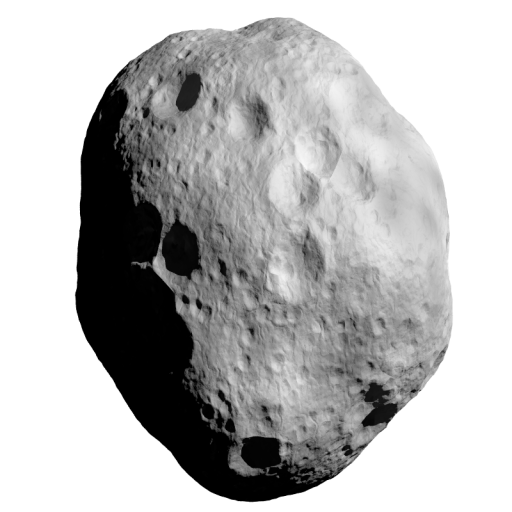Key Facts
- Categorized as a Main-belt Asteroid
- Comparable in size to the San Francisco Bay (4.94 km diameter)
- Not a Near Earth Object
- Not a Potentially Hazardous Object
- See orbit simulation
Overview
Carrasco is a mid-sized asteroid orbiting between Mars and Jupiter in the main portion of the asteroid belt. NASA JPL has not classified Carrasco as potentially hazardous because its orbit does not bring it close to Earth.
Carrasco orbits the sun every 1,230 days (3.37 years), coming as close as 2.06 AU and reaching as far as 2.42 AU from the sun. Carrasco is about 4.9 kilometers in diameter, making it larger than 99% of asteroids, comparable in size to the San Francisco Bay.
The rotation of Carrasco has been observed. It completes a rotation on its axis every 33.53 hours.
No Close Approaches
Carrasco's orbit is 1.06 AU from Earth's orbit at its closest point. This means that there is an extremely wide berth between this asteroid and Earth at all times.
Orbital simulations conducted by NASA JPL's CNEOS do not show any close approaches to Earth.
Images and Observations
Carrasco's orbit is determined by observations dating back to March 23, 1982. It was last officially observed on July 2, 2023. The IAU Minor Planet Center records 3,855 observations used to determine its orbit.
Accessibility and Exploration
This asteroid is not considered a viable target for human exploration by the NHATS study.Similar Objects
These objects have orbits that share similar characteristics to the orbit of Carrasco:References
Search
or view a random objectOrbital Elements
- Epoch: 2460200.5 JD
- Semi-major axis: 2.243 AU
- Eccentricity: 0.0798
- Inclination: 4.03°
- Longitude of Ascending Node: 185.13°
- Argument of Periapsis: 29.08°
- Mean Anomaly: 93.05°
Physical Characteristics
- Diameter: 4.94000 km
- Magnitude: 13.69
- Albedo: 0.501
Derived Characteristics
- Orbit Period: 1,230 days (3.37 years)
- Avg. Orbit Speed: 19.84 km/s
- Aphelion Distance: 2.42 AU
- Perihelion Distance: 2.06 AU
- Rotation Period: 33.53 hours
Map Comparison
Orbit Simulation
Sky Map
The position of Carrasco is indicated by a ◯ pink circle. Note that the object may not be in your current field of view. Use the controls below to adjust position, location, and time.
Size Rendering
The above comparison is an artistic rendering that uses available data on the diameter of Carrasco to create an approximate landscape rendering with Mount Everest in the background. This approximation is built for full-resolution desktop browsers. Shape, color, and texture of asteroid are imagined.

